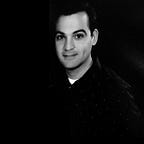War = Change
Comparative Literature: Night, The Lover, and Waste Land and War
War forces change. It forces individuals to cross national, gender, socio-economic-political boundaries and before, during, and after the conflict live in a liminal space. Experiences can vary but the state of war generally uproots old norms creating liminal areas. I say generally because we live in a time when a war can be fought in an arena disconnected from the citizens funding said war. Liminality, in turn, forces characters to gain experience and knowledge. The characters of Night, The Lover, and The Waste Land discover the frailty of human systems and are thrust into liminal spaces caused by war.
One of the most important lessons Wiesel’s character, in Night, seems to learn is the impermanence and frailty of human systems. Steven Jaron, in “Autobiography And The Holocaust: An Examination Of The Liminal Generation In France. “The writings of adults who narrate their childhoods bear the scars of a lived experience” (208). In Night, the narrator explains the scars of his experiences with the impermanence of his society when he says, “Most people thought that we would remain in the ghetto until the end of the war… Afterward everything would be as before. The ghetto was ruled by neither German nor Jew; it was ruled by delusion” (Wiesel 12).
The people around Night’s narrator were thrust into a liminal state. They waited out the discrimination, the ghetto, the trains, and the camps. Thus, they imagined a life that awaited them after the war. Sighet, the ghetto, and even the death camps became a gateway to life. The narrator perceptively sees an impermanent state that cracks and breaks revealing the fragility of any system. The liminal experiences of war are in themselves the gateway to the knowledge that everything is susceptible to irreversible change.
In The Lover, the narrator learns from the liminality of war that ideas and alliances may change rather quickly. The narrator states, “two years after the war, I was a member of the French Communist party. The parallel is complete… the two things are the same lack of judgment, the same superstition… that consist in believing in a political solution to a personal problem” (Duras 62). The narrator sees the political system as an extension of the war. One of two ways to disrupt a system. “Political identity is itself a multi-dimensional concept shaped not only by the political ideology, practices and institutions… but also by the relationship with the state and its political institutions” (Berti 118). She learns that systems can rise and fall easily and, often, offer no personal solutions.
The Waste Land’s character learns the seriousness of war. By taking a global approach the character sees the damage the path of war causes society but, also, nature. Elliot writes:
“What is that sound high in the air
Murmur of maternal lamentation
Who are those hooded hordes swarming
Over endless plains, stumbling in cracked earth” (Elliot 26)
The disruption manifest by the lamenting mothers shows a world torn apart by war. The main character learns that to improve and avoid the cycles of building, destruction, and rebuilding of war, society must move away from war and embrace unity with nature.
The characters of each of the above-mentioned works highlight the fragility of human created systems. They watch as their worlds are torn apart by war and suffer from the liminal state between war and peace. They learn that little, if anything, humanity creates is permanent. Also, they experience the frivolousness of political participation along with the understanding that change is necessary for survival.
Works Cited
Berti, Benedetta. “Rebel Politics and The State: Between Conflict And Post-Conflict, Resistance and Co-Existence.” Civil Wars 18.2 (2016): 118. Publisher Provided Full Text Searching File. Web. 6 Dec. 2016.
Duras, Marguerite. The Lover. New York, Pantheon Books, 1997.
Elliot, T.S. “The Waste Land.” The Project Gutenburg.org. N.p., 11 July 2016. Web. 3 Oct. 2016.
Jaron, Steven. “Autobiography And The Holocaust: An Examination Of The Liminal Generation In France.” French Studies2 (2002): 207. Expanded Academic ASAP. Web. 6 Dec. 2016.
Wiesel, Elie, and Marion Wiesel. Night. New York, NY: Hill and Wang, a Division of Farrar, Straus and Giroux, 2006. Print.
